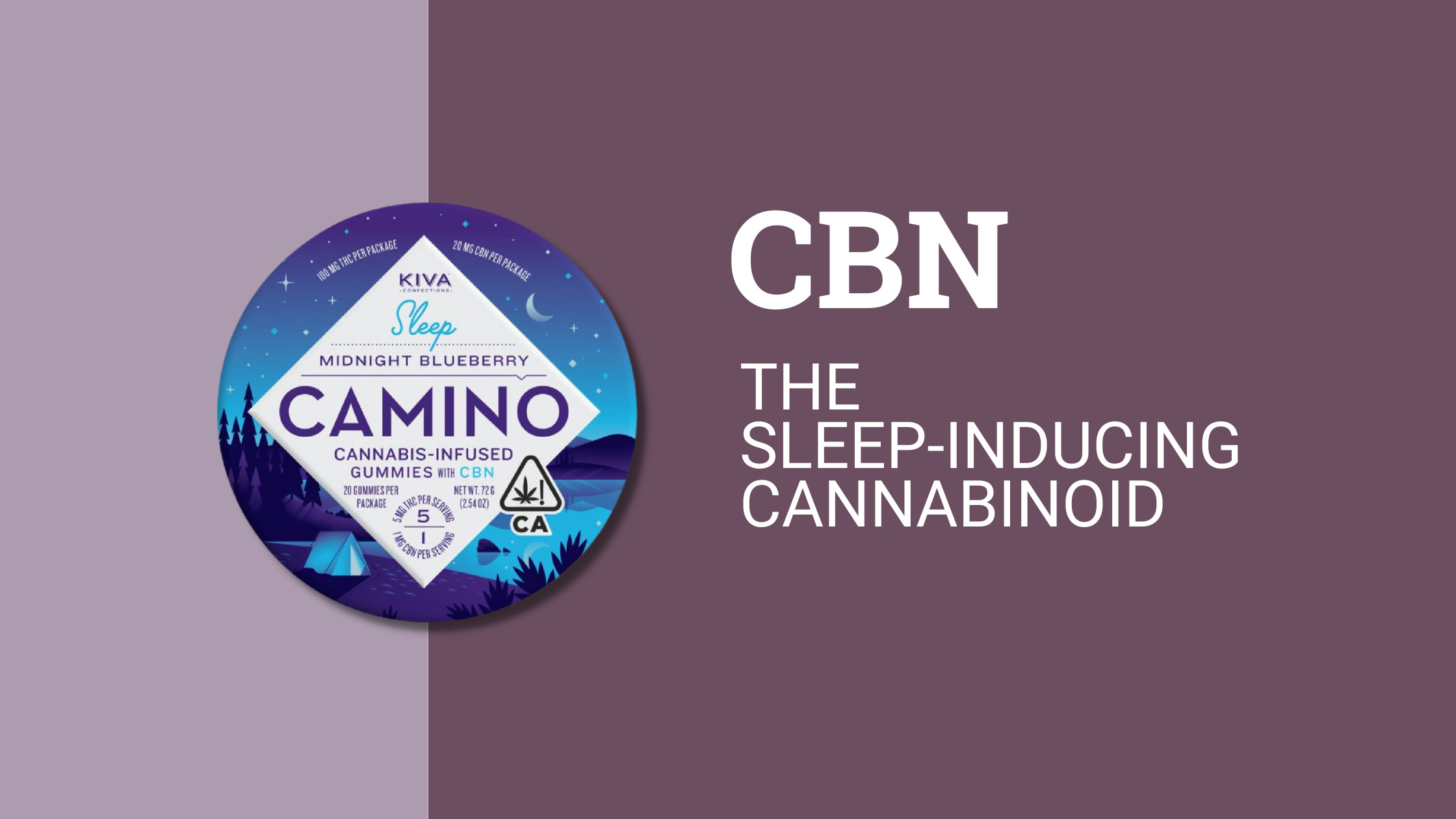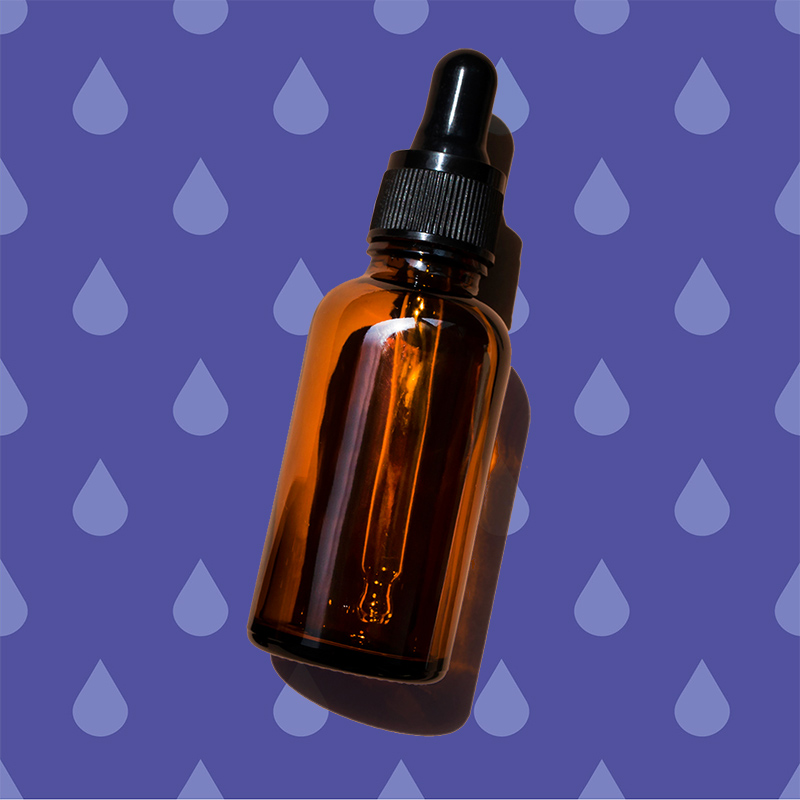CBN: The Sleep-Inducing Cannabinoid
Written by Chris Weatherall on Nov 16, 2022
CBN is a popular cannabinoid, but what should we know about CBN and sleep? This minor cannabinoid has always existed in the cannabis plant in small quantities, but it is gaining in popularity for its potential healing properties. Currently, CBN is mostly used by the general population as a sleep-inducing aid. However, it may do more than just induce sleep—many fans of CBN report that it makes for longer-lasting, more satisfying sleep.
To understand how CBN can lead to better sleep, it’s important to understand what it is and how it works. While CBN is a cannabinoid like THC and CBD, it has different traits, effects, and properties than THC and CBD. By understanding where CBN comes from, what it does, and what it can do, you can determine if it’s right for you.
What Is CBN?
THC and CBD are two common cannabinoid names, but they aren’t the only compounds found in the cannabis plant. In fact, there are around 150 different cannabinoids that have been identified, all of which have their own unique characteristics and effects on the brain and body.The newest cannabinoid to take the stage is cannabinol, commonly referred to as CBN. While its effects have been the subject of less research than its cannabinoid counterparts, CBN is gaining in popularity. Researchers believe CBN is promising in that it may be beneficial in the treatment of some common ailments.
CBN is found in the cannabis sativa plant, though it can be produced semi-synthetically. Unlike some other cannabinoids, it is not present in substantial amounts in fresh cannabis flower. Instead, CBN is a product of the oxidation process. In other words, it is the result of a process that occurs when heat, light, and/or air cause THC to degrade. This degraded THC then forms CBN. For this reason, it is found in far larger quantities in dried cannabis that has been stored at elevated temperatures for some time. As mentioned, CBN can also be created synthetically.

CBN and Sleep: FAQs
While CBN is a cannabinoid, it is not as well-known as THC and CBD. As a result, it is a bit more mysterious to many people than the two major cannabinoids. Here we answer some common questions about CBN.
How CBN Can Lead to Better Sleep
Because of its mild attraction to the CB1 receptor, it is not surprising that CBN can lull subjects to sleep when taken in the appropriate dosage. In fact, of those who have tried CBN as a sleep aid, many say it was the best night’s sleep they’ve ever had. Some even report that they feel less groggy the next morning, especially when paired with melatonin.
CBN’s most well-known potential benefit, drowsiness, is listed as a side effect in many products, especially when taken with CBD. Many others choose to take CBN with melatonin to harness the sleep-inducing benefits of both compounds. However, with the proper dosage, CBN taken alone can be a useful component in treating insomnia and other disorders that affect sleep.
How? While research is ongoing to discover the precise effects CBN has on sleep, its known effects are already key indicators of why this compound is so effective at promoting sleep. Like CBD, CBN works to reduce arousal in many of the bodily systems that create pain, stress, anxiety, inflammation, and more—an effect regularly demonstrated in animal studies. By alleviating this overactivity, CBN can make it easier for you to achieve sleep.
CBN Sleep Products and More
While CBD and THC can be found both naturally in cannabis flower as well as within a wide variety of products, CBN is far less mainstream. As mentioned, CBN is also not present in therapeutic amounts in most cannabis flower.
Currently, CBN can be purchased in the form of oils, capsules, tea bags, tinctures, patches, and disposable vape pens. It can also be purchased as a CBN isolate. More easily ingested CBN products are emerging as well, such as CBN soft gels, CBN gummies, and other edibles.
Many CBN products contain a variety of cannabinoids, including CBD or even THC, so read the label before you purchase. If you don’t wish to consume THC, you’ll want to look for a CBN product that excludes THC.
If you want to experiment with products containing both CBN and THC but you’re new to THC consumption, look for no more than 2.5mg of THC per CBN dose. These levels can be increased with experience and tolerance but start slow so you can gauge their effects on your symptoms.

Pictured here: 5mg: 1mg CBN ‘Sleep’ Midnight Blueberry by Camino
Other Potential Uses of CBN
CBN has the potential to treat many other conditions.
Here are some of the most common effects CBN may have on patients:
Wound Healing and Anti-Inflammatory Properties
Preliminary research shows that CBN has antibacterial properties. When CBN cream is applied to the skin of clinical trial participants, it appears to be beneficial in treating epidermolysis bullosa, a rare disease that causes blisters on the skin. Scientists are hopeful that the potential antibacterial and anti-inflammatory effects of CBN cream can aid in the healing of chronic wounds on the skin where long-term inflammation has previously prevented healing. Its anti-inflammatory properties and pain-relieving tendencies also give it the potential to improve the symptoms of such conditions as Crohn’s disease and rheumatoid arthritis.
Reduced Eye Pressure
CBN also shows promise in treating eye conditions that are associated with high pressure in the eye, such as glaucoma, which causes damage to the nerve in the back of the eye and leads to vision loss and blindness. CBN may help slow down the progression of the disease by diminishing high eye pressure. Because CBN is believed to be highly effective at treating high eye pressure, even more so than CBD and THC, eye drops infused with CBN are available for glaucoma patients.
Anticonvulsant and Neuroprotective Properties
CBN is believed to relieve symptoms of conditions in which seizures are a symptom, including epilepsy. In addition, studies show that the compound may serve to protect brain and nerve cells from early cell death. Together, these properties could mean CBD is useful in reducing the effects of neurological disorders like Alzheimer’s disease, epilepsy, and more.
Pain Relieving Properties
As mentioned earlier, CBN, when mixed with CBD, may play a potential role in decreasing muscle sensitization. This suggests that CBN may be helpful in relieving chronic muscle pain in sufferers of muscular pain disorders like fibromyalgia. While definitive research is not yet conclusive, studies are in the works, and researchers believe there’s more to CBN than meets the eye.
Other Areas of Study
CBN has been involved in the study of potential treatments for other illnesses, as well. Again, this research is still in the preliminary stages.
A list of some of the conditions CBN has been studied about in treatment purposes follows.
- ADHD
- Loss of appetite
- Lou Gehrig’s disease
- Dental conditions
- Parkinson’s disease
- Arthritis
The Last Word About CBN and Sleep

The best way to determine whether CBN can lead to better sleep for you is to try it. You’ve already taken the first step in educating yourself about CBN and determining if it is a safe option for you personally. You now also likely have an idea of the capacity in which CBN can be the most effective holistic treatment for your personal ailments. Always keep in mind that more research is needed for scientists to better understand how CBN can lead to better sleep, but there is enough preliminary evidence to suggest it is worth a try.
Resources:
- https://www.ncbi.nlm.nih.gov/pmc/articles/PMC7404216/
- https://www.medicalnewstoday.com/articles/cbd-vs-cbn#other-cannabinoids
- https://www.sciencedirect.com/book/9780128046463/the-analytical-chemistry-of-cannabis
- https://pubmed.ncbi.nlm.nih.gov/1221432/
- https://pubmed.ncbi.nlm.nih.gov/27435265/
- http://www.ncbi.nlm.nih.gov/pubmed/18681481
- https://www.fasebj.org/doi/full/10.1096/fj.201600646r
- https://www.sciencedirect.com/science/article/abs/pii/S0925443921002581







